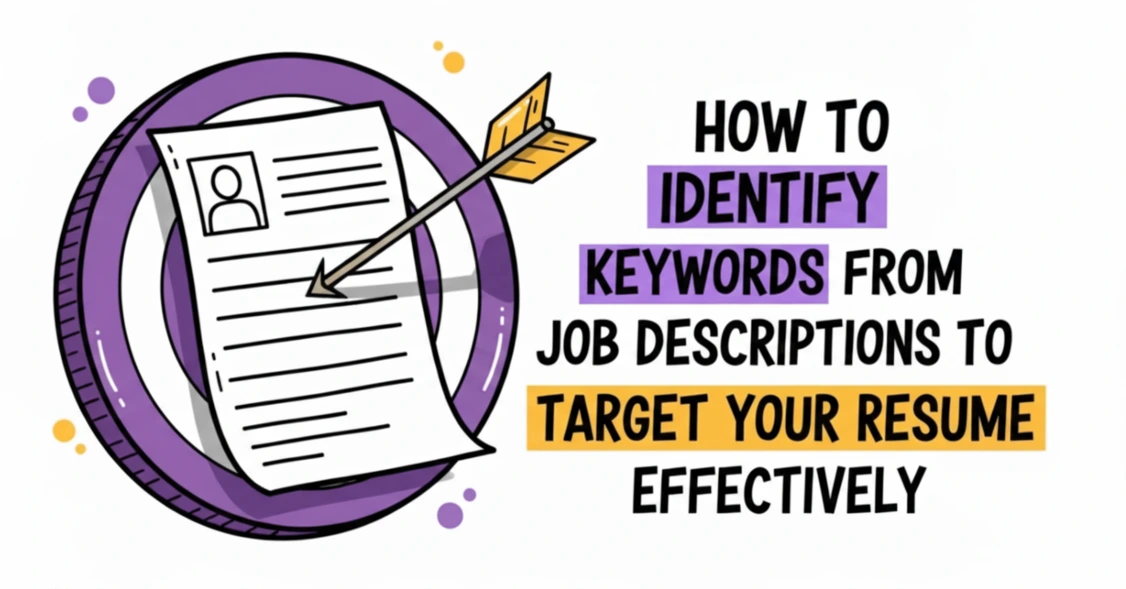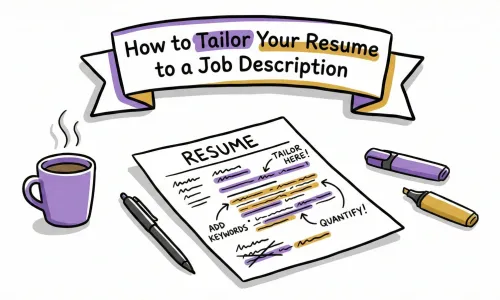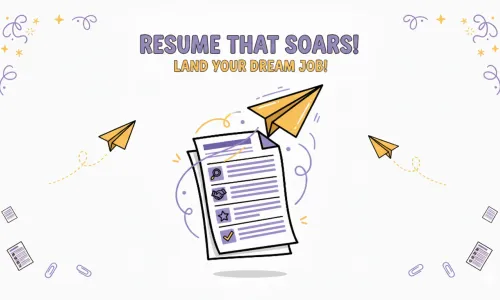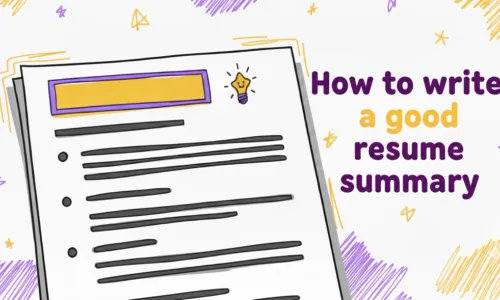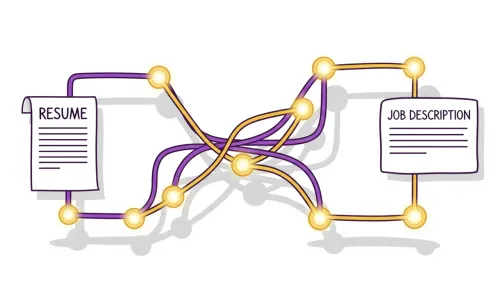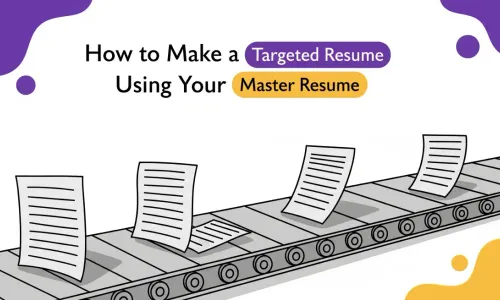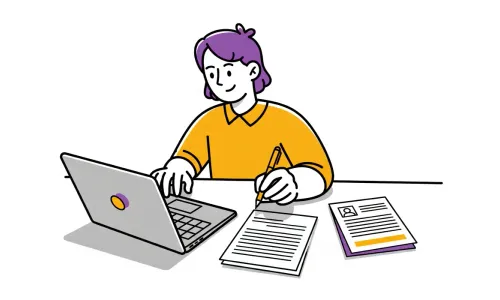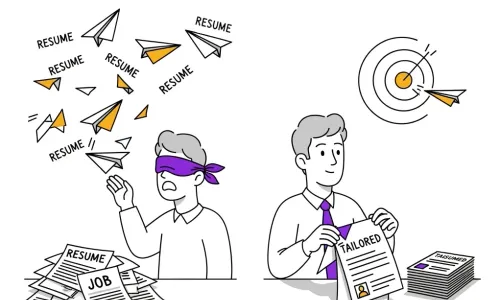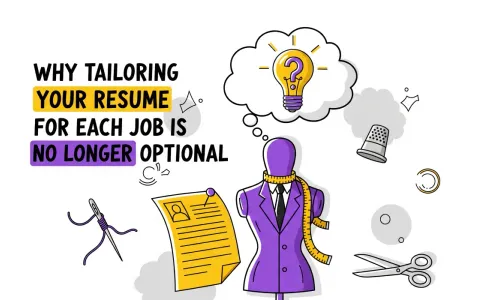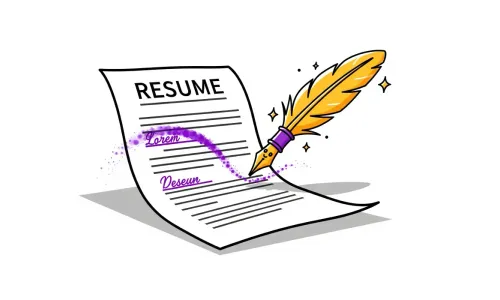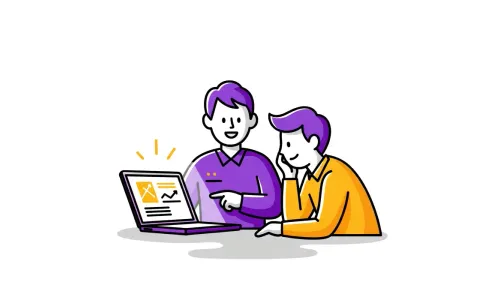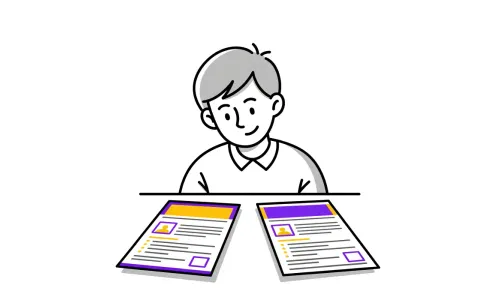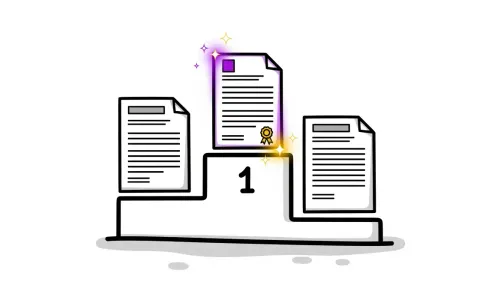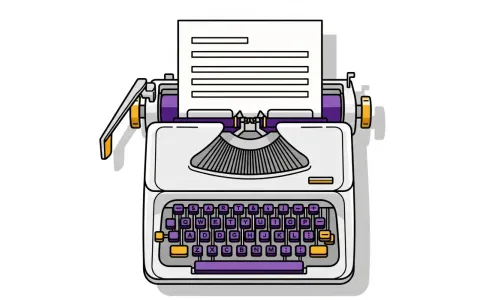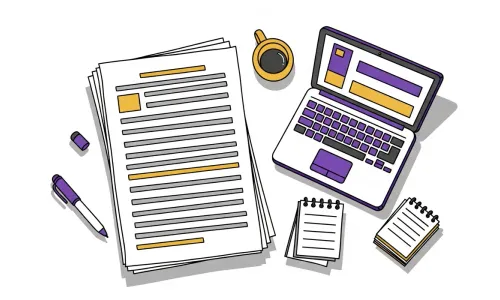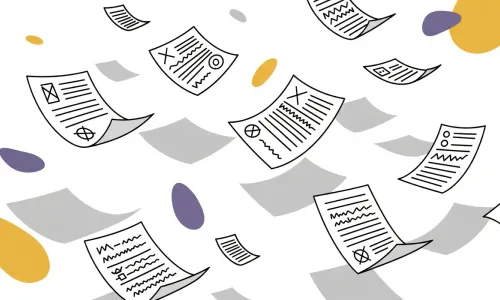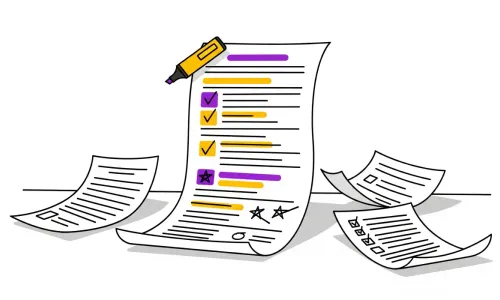Why a Targeted Resume is Your Secret Weapon in the Job Search
Getting a job can be a numbers game. With hundreds of applicants vying for the same role, it's easy to feel like your resume is lost in the shuffle. You've meticulously crafted your resume, but the silence from recruiters can be deafening. The good news is that you can change the odds in your favor. The secret? A targeted resume. This guide will show you how to write a targeted resume that not only gets you noticed but also gets you hired.
What is a Targeted Resume and Why is it So Important?
A targeted resume is a customized version of your resume that is specifically tailored to the requirements of a particular job posting. Think of it as a bespoke suit, perfectly fitted to the dimensions of a specific role, rather than a one-size-fits-all t-shirt. While a generic resume simply lists your work history and skills, a targeted resume strategically highlights the experiences and qualifications that are most relevant to the job you're applying for.
Defining a Targeted Resume
At its core, a targeted resume is a document that speaks directly to the needs of the employer. It's a resume that has been carefully crafted to align with the language, keywords, and priorities outlined in the job description. This means that for every job you apply to, you'll have a slightly different version of your resume. It's more work, yes, but the payoff is significant.
The Role of Applicant Tracking Systems (ATS)
One of the biggest hurdles your resume needs to overcome is the Applicant Tracking System (ATS). An ATS is a software application that employers use to manage the recruitment process. It scans resumes for specific keywords and phrases to determine if a candidate is a good fit for the role. If your resume isn't optimized for the ATS, it may never even reach a human hiring manager. A targeted resume, rich with the right keywords, is your best defense against the ATS filter. To learn more about why most resumes don't get seen, read our article on Why Most Resumes Are Invisible in 2025.
The Benefits of a Targeted Resume
The benefits of taking the time to write a targeted resume are numerous:
- Increased Visibility: A targeted resume is more likely to pass the ATS scan and land in the hands of a recruiter.
- Shows Genuine Interest: It demonstrates to the employer that you've done your research and are genuinely interested in the position.
- Highlights Your Value: It allows you to showcase your most relevant skills and accomplishments, making a stronger case for your candidacy.
How to Write a Targeted Resume: A Step-by-Step Guide
Now that you understand the "what" and "why" of a targeted resume, let's dive into the "how." Follow these steps to create a resume that is perfectly tailored to your dream job.
Step 1: Start with a Master Resume
Before you start tailoring your resume for each job application, it's essential to have a master resume. A master resume is a comprehensive document that includes all of your work experience, skills, accomplishments, and education. This document is for your eyes only and serves as a repository of all your professional information. Having a master resume will save you time in the long run, as you can simply copy and paste relevant information into your targeted resume.
Step 2: Deconstruct the Job Description
The job description is your cheat sheet for creating a targeted resume. Print it out or open it in a separate window and carefully read through it. As you read, highlight or make a list of the key responsibilities, qualifications, and skills that the employer is looking for. Pay close attention to the language they use, as you'll want to mirror that language in your resume.
For example, let's say you're applying for a marketing manager position. The job description might include phrases like "develop and execute marketing campaigns," "manage social media channels," and "analyze marketing data." These are the keywords and phrases you'll want to incorporate into your resume.
Step 3: Identify the Key Keywords
Once you've deconstructed the job description, it's time to identify the key keywords. These are the words and phrases that the ATS and hiring manager will be looking for. Keywords can be broken down into three categories:
- Hard Skills: These are teachable skills that can be measured, such as "project management," "data analysis," or "graphic design."
- Soft Skills: These are interpersonal skills that describe how you work, such as "communication," "teamwork," or "problem-solving."
- Company-Specific Keywords: These are keywords that are unique to the company or industry, such as the name of a specific software or technology.
Here's an example of how to identify keywords in a job description for a software engineer role:
Job Description Snippet:
We are looking for a skilled software engineer to join our team. The ideal candidate will have experience with Java, Python, and Agile methodologies. You will be responsible for designing, developing, and testing software solutions. Strong problem-solving and communication skills are a must.
Keywords to Target:
- Java
- Python
- Agile methodologies
- designing, developing, and testing software solutions
- problem-solving
- communication skills
Step 4: Tailor Your Resume Sections
Now it's time to start tailoring your resume. Here's how to approach each section:
- Professional Summary: Your professional summary is the first thing a hiring manager will read, so it's important to make a strong impression. Rewrite your summary to reflect the key requirements of the job. For example, if the job description emphasizes "leadership," be sure to include that word in your summary.
- Work Experience: This is where you can really shine. For each of your previous roles, focus on the accomplishments and responsibilities that are most relevant to the job you're applying for. Use the keywords you identified in the job description to describe your experience. Instead of simply listing your duties, use action verbs and quantify your achievements whenever possible.
- Skills Section: Create a dedicated skills section that lists your most relevant hard and soft skills. This is a great place to include keywords that you couldn't naturally fit into your work experience section.
- Education and Certifications: If the job description requires a specific degree or certification, be sure to highlight it in this section.
Step 5: Quantify Your Achievements (When It Makes Sense)
Numbers can be powerful, but only when they're meaningful. Vague claims like "improved team efficiency by 20%" are meaningless without context. Instead of sprinkling your resume with impressive-sounding but empty numbers, focus on achievements that are both relevant and measurable.
When you can, use specific data to demonstrate your impact. For example, instead of saying "Managed a team of sales representatives," you could say, "Led a team of 10 sales representatives to achieve a 15% increase in quarterly sales." This provides concrete evidence of your accomplishments.
However, don't force it. It's better to have a few impactful, quantifiable achievements than a long list of meaningless metrics. As a rule of thumb, aim for no more than one or two measurable achievements per work experience entry.
How to Write a Targeted Resume for a Specific Job
Writing a targeted resume for a specific job requires a bit of extra effort, but it's well worth it. Here are a few tips:
- Research the Company: Before you start writing, take some time to research the company. What are their values? What is their mission? What is their company culture like? You can usually find this information on their website or social media channels. Incorporating this information into your resume will show that you're a good fit for the company.
- Use the Same Language as the Job Description: As you write your resume, try to use the same language as the job description. This will help your resume get past the ATS and will also show the hiring manager that you're a good fit for the role.
- Focus on the Most Relevant Experience: You don't need to include every single job you've ever had on your resume. Instead, focus on the experience that is most relevant to the job you're applying for. This will make your resume more concise and easier to read.
Targeted Resume Examples in Action
Let's take a look at a few targeted resume examples to see how this all comes together in practice.
Example 1: Marketing Manager
Job Description Snippet:
"We're seeking a results-oriented Marketing Manager to lead our demand generation strategy. The ideal candidate will have a proven track record of developing and executing successful B2B marketing campaigns, managing a team of marketing professionals, and driving MQL growth. Experience with HubSpot, Salesforce, and Google Analytics is essential."
Targeted Resume Snippet (Work Experience):
Marketing Manager | ABC Company | 2019 - Present
- Developed and executed multi-channel B2B marketing campaigns that resulted in a 25% increase in MQL growth year-over-year.
- Managed a team of 5 marketing professionals, providing mentorship and guidance to drive team success.
- Utilized HubSpot and Salesforce to automate marketing and sales processes.
- Analyzed campaign performance using Google Analytics to optimize marketing spend and drive a higher ROI.
Example 2: Software Engineer
Job Description Snippet:
"We are looking for a skilled software engineer to join our team. The ideal candidate will have experience with Java, Python, and Agile methodologies. You will be responsible for designing, developing, and testing software solutions. Strong problem-solving and communication skills are a must."
Targeted Resume Snippet (Skills Section):
Technical Skills:
- Programming Languages: Java, Python, C++
- Development Tools: Git, Jira, Jenkins
- Methodologies: Agile, Scrum
Targeted Resume Snippet (Work Experience):
Software Engineer | XYZ Inc. | 2020 - Present
- Designed, developed, and tested scalable and reliable software solutions using Java and Python.
- Collaborated with cross-functional teams in an Agile environment to deliver high-quality software on time.
- Demonstrated strong problem-solving skills by debugging and resolving complex technical issues.
Common Mistakes to Avoid When Writing a Targeted Resume
As you write your targeted resume, be mindful of these common pitfalls:
- Keyword Stuffing: While it's important to include keywords, don't overdo it. Keyword stuffing is the practice of loading your resume with keywords to the point where it becomes unreadable. This will not only turn off hiring managers but can also get your resume flagged by the ATS.
- Using the Same Resume for Every Application: The whole point of a targeted resume is that it's tailored to a specific job. If you're using the same resume for every application, you're doing it wrong.
- Ignoring Company Culture: Take some time to research the company and get a feel for their culture. Your resume should reflect the company's tone and values. For example, a resume for a creative agency might look very different from a resume for a financial institution.
- Not Proofreading: Typos and grammatical errors can make you look unprofessional and careless. Always proofread your resume multiple times before submitting it.
Take Your Resume to the Next Level with Reztune
Creating a targeted resume for every job application can be a time-consuming process. But what if there was a way to automate the process and ensure your resume is perfectly optimized every time? That's where Reztune comes in.
Reztune is an AI-powered resume builder that takes the guesswork out of resume writing. Simply upload your resume and the job description, and Reztune will analyze the job posting, extract the key keywords, and rewrite your resume to match the requirements of the job. With Reztune, you can create a professionally written, ATS-optimized resume in minutes, not hours. Learn more about how it works here.
Ready to take the guesswork out of resume writing? Let Reztune's AI-powered platform do the heavy lifting for you. Sign up for free and start creating a targeted resume that gets results.
Conclusion: Your Resume is a Marketing Document – Treat it Like One
Your resume is your most powerful marketing tool in the job search. By creating a targeted resume that is tailored to each specific job, you can significantly increase your chances of landing an interview. Remember to focus on keywords, quantify your achievements, and showcase your most relevant skills and experience. With a little extra effort, you can create a resume that opens doors to your dream job.
Ready to land your dream job? Try Reztune for free today!
Frequently Asked Questions (FAQ)
How long should my resume be?
Ideally, your resume should be one page long. However, if you have extensive experience, it can be two pages.
Should I include a cover letter with my targeted resume?
Yes, you should always include a cover letter unless the job posting specifically says not to. A cover letter is a great opportunity to expand on your resume and show your personality.
How often should I update my resume?
You should update your resume every time you apply for a new job. You should also update your master resume every few months to ensure it's current.
Is a targeted resume important for a career change?
Yes, a targeted resume is crucial when you're making a career change. It allows you to highlight your transferable skills and show how your past experience is relevant to the new role you're targeting.
Where can I find a good resume template?
There are many great resume templates available online. Look for a template that is clean, professional, and easy to read. Reztune offers a variety of ATS-optimized resume templates to choose from.
Is it okay to use a generic resume?
While it may be tempting to use a generic resume to save time, it's not the most effective strategy. A generic resume is unlikely to impress a hiring manager or pass an ATS scan. Taking the time to create a targeted resume will significantly increase your chances of landing an interview.
Should I include volunteer work on my resume?
Yes, you can definitely include volunteer work on your resume, especially if it's relevant to the job you're applying for. Volunteer work can be a great way to demonstrate your skills and experience, especially if you have gaps in your employment history.
How can a targeted resume help me in my job hunt?
A targeted resume can help you in your job hunt by making your application stand out to recruiters and hiring managers. It shows that you've taken the time to understand the role and that you're a serious candidate. This can lead to more interviews and a better chance of landing your dream job.
What is an ATS resume?
An ATS resume is a resume that has been formatted and optimized to be easily read by an Applicant Tracking System (ATS). This means using a clean and simple format, standard fonts, and relevant keywords.
What is a resume builder?
A resume builder is an online tool that helps you create a professional resume. Resume builders often provide templates, writing prompts, and other features to make the resume writing process easier. Reztune is an AI-powered resume builder that can help you create a targeted resume in minutes.

